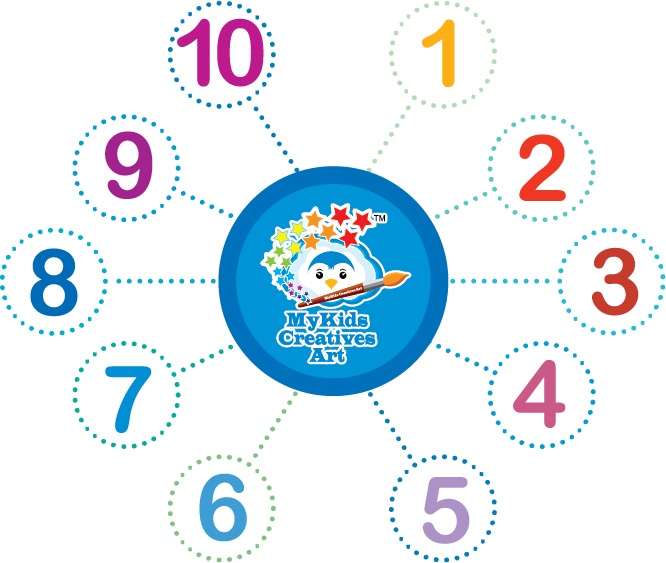

Art develops your ability to interpret and understand visual information, which is a valuable skill in a world increasingly driven by images, graphics, and visual media.

Studies show that engaging with art can improve cognitive abilities, leading to better performance in subjects like math, science, and reading by strengthening critical thinking, problem-solving, and focus.

Art provides a safe, constructive outlet for expressing feelings, whether through painting, drawing, sculpture, or other forms. It allows you to process and release emotions that might be hard to articulate with words.

Beyond words, art is a universal form of communication. It enables you to share ideas and messages with others, even across language and cultural barriers, fostering deeper connections and understanding.

Creating art sparks imagination and creativity, helping you think outside the box. Art challenges you to explore new possibilities, develop innovative solutions, and approach problems from multiple angles.

Completing an art project, no matter the scale, instills a sense of achievement and boosts self-esteem. Art encourages you to take risks and trust your abilities, building confidence in your creative expression.

Art allows you to discover and refine your talents, developing skills that can be applied in various aspects of life. Whether you pursue it as a hobby or a career, art helps you continuously grow and hone your craft.

Engaging in creative activities can be deeply calming. The focus required in art helps to relieve stress and anxiety, providing a mindful escape that promotes mental well-being and relaxation.

The act of creating or appreciating art brings a sense of joy and satisfaction. Whether through the process or the final piece, art can uplift your mood and create a sense of fulfillment and happiness.

Art trains the mind to think creatively and expand your problem-solving abilities. It encourages experimentation and risk-taking, essential for nurturing a strong creative mindset that benefits all areas of life.